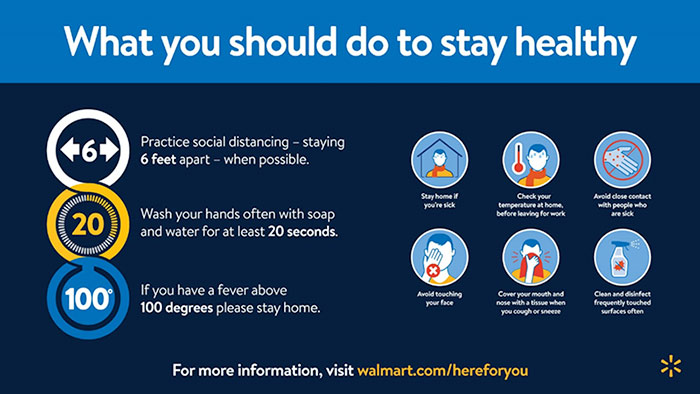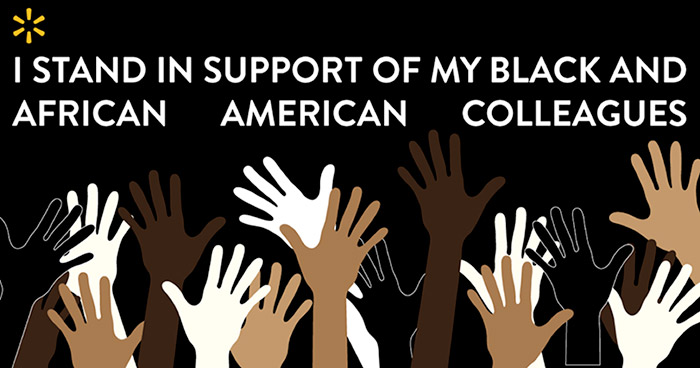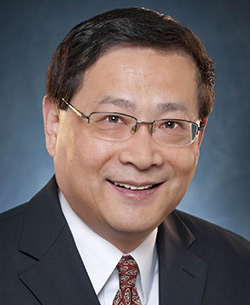By Donald Fan

The world is in crisis. The United States is in crisis. In the midst of the coronavirus pandemic, we have witnessed racial violence, racist threats, and hate crimes toward black people and other minority communities in America. The global public health pandemic, coupled with social injustice, has swept the world, making an unprecedented impact on every aspect of human life. This crisis is just the latest example of the VUCA (volatility, uncertainty, complexity, ambiguity) world we are living in—a world that has presented us with the 911 terrorist attacks, the 2008 economic crisis, the 2020 COVID-19 pandemic, and ongoing systemic injustice.
Are we prepared to live and cope with this unparalleled turmoil over the long run?
In the wake of the pandemic and social injustice, I can’t help asking myself if we can foster a leadership style—let’s call it VUCA Prime (Vision, Understanding, Clarity, Agility)—that will help us effectively battle VUCA challenges in the 21st century. VUCA Prime is a behavioral leadership model, first introduced by Robert Johansen, meant to counteract each aspect of the VUCA world—volatility, uncertainty, complexity, and ambiguity—with a specific positive response.
Vision – When conditions are changing unpredictably, leaders should remain optimistic and keep focused on the future and desired target state and vision.
Understanding – When uncertainty is presented, explore and experiment with empathy to increase learning and understanding of what is going on externally and internally.
Clarity – When faced with complexity, learn to break down the challenge into manageable pieces and simplify wherever possible, as clarity informs well-calculated decisions and decisions enable robust execution.
Agility – When the future contains multiple alternatives, be ready to adapt your approach to match the desired outcome. Organizational agility is simply achieved by adopting the practice of inclusivity and collaboration.
Facing the crisis, some leaders demonstrate VUCA leadership and make themselves stand out of the crowd. For example, since the coronavirus breakout, Walmart executives have been leading by example. They stand out, speak up, appeal for change, lead the pack on important social and cultural issues.
To respond to the recent heartbreaking racial tragedies, the company’s CEO, Doug McMillon, took a stand and sent a message to its employees, stating:
“In our 50-plus years as a company, it rings true more each year that the world’s challenges are our challenges. The global health crisis has tested all of us in recent months, and the racial violence in the U.S.— in particular, the murder of George Floyd—is tragic, painful and unacceptable.
Inside the company, our work to recruit, develop and support African Americans and other people of color will be even more of a priority. We need each of you to actively partner to identify and work with your leaders to bring in great talent to the company. We want all of you to exercise your voice to make every part of our company even better.
To influence and lead change in society more broadly, we are going to invest resources and develop strategies to increase fairness, equity and justice in aspects of everyday life. We will find the natural overlaps between Walmart’s core business and society’s larger needs that perpetuate racism and discrimination. Specifically, we’re going to focus the power of Walmart on our nation’s financial, healthcare, education and criminal justice systems.
In addition to leveraging our business to drive these outcomes,Walmart and the Walmart Foundation are committing $100 million over five years through a new center on racial equity. The goal of the center will be to address systematic racism in society head-on and accelerate change. Through the $100 million commitment, the center will support philanthropic initiatives that align with the four key areas noted above. The center will seek to advance economic opportunity and healthier living, including issues surrounding the social determinants of health, strengthening workforce development and related educational systems, and support criminal justice reform with an emphasis on examining barriers to opportunity faced by those exiting the system.
As an associate at Walmart, you are expected to truly, authentically and more deeply embrace inclusion. We must work together to actively shape the culture to be more inclusive and not just accept our differences but celebrate them—all the time—within every team.
We’ve made a difference in the world in so many ways. We can make a meaningful, lasting difference in racial equity, too.”
While we need leaders who speak their minds and inspire others to make a change by learning more and contributing more, we should also reflect on what we learn and contemplate what it takes us to bend the curve of the crisis and get out of it stronger and more resilient.”
By observing and learning from how Walmart, my employer, has reacted in the current pandemic and social events, I believe it is essential to lead the VUCA world through empathy, humility, and inclusivity—the emotional foundation of the VUCA leadership.
Empathy
Psychology describes empathy as the ability to recognize, understand, and share the thoughts and feelings of others. Developing empathy is vital for establishing relationships and behaving compassionately. Empathy occurs in three stages: cognitive empathy—becoming aware of the emotional state of others; emotional empathy—engaging with and sharing those emotions; and compassionate empathy—taking action to support other people.
During this large-scale public health and social crisis, empathetic leaders believe we are all in this together, and that it is vital to think of others, care for others, and always be ready to offer help and support. At a time when we all practice social distancing, it is more important than ever that we remain emotionally connected.
Walmart’s CEO and his executive team have been consistently visiting the stores, clubs, distribution centers, and fulfillment centers across the country to learn about and understand employees’ and customers’ needs and concerns. They are making swift, consequential decisions that affect the lives and livelihoods of employees and customers, whether the decisions involve optimizing sourcing and replenishing essential products on the shelves, or changing workplace policies, benefits, and practices.
The company is reinvesting in and enhancing the technology infrastructure to provide robust systemic support for virtual connection and team collaboration.
Walmart is also developing institutional mechanisms to keep its employees and customers safe and healthy. If employees are not feeling well, have a fever, or exhibit symptoms, they are encouraged to stay home. The company has created a new COVID-19 emergency leave policy, and an employee health screening process has been developed, which includes taking each employee’s temperature each day before work.
Additionally, the company is providing gloves and masks for employees working at the front lines. Testing for COVID-19 is 100 percent covered, and access to telehealth appointments through Doctor on Demand and online COVID-19 assessments are free, for employees and family members on a Walmart medical plan. All employees have access to Resources for Living, which offers three behavioral counseling sessions at no cost.
The company has also established a 6-20-100 rule to promote healthy behaviors (see accompanying graphic).

Harvard professor Frances Frei demonstrates how to cultivate and maintain trust using the well-known trust-building triangle: People tend to trust you when they believe they are interacting with the real you (authenticity); when they have faith in your judgment and competence (logic); and when they feel that you are interested in them and care about them (empathy). When trust is lost, that loss can almost always be traced to a breakdown in one of these three drivers. In her view, empathy is the most common wobble. We can only establish trust when we are fully present and give 100 percent of our attention to the people, or the situation, in front of us at that moment.
Humility
Humility is a virtue that pivots on low self-preoccupation. It refers to self-awareness, appreciation of others’ strengths and contributions, and seeking out new ideas and feedback.
There is no better time to practice humility than in the middle of a crisis. Facing uncertainty and ambiguity, leaders with humility are self-aware, authentic, open to new ideas, and appreciative of the value and contribution of others. They are confident that they can weather the storm, have a better grasp of organizational needs, and make better-informed and timely decisions.
According to Gallup research, when leaders present a clear path forward, people demonstrate high resilience. There is a rallying effect when we pull together with a shared vision to move beyond the crisis. People look to leadership to act with confidence and provide a crisis management plan.
Since the beginning of the COVID-19 outbreak, Walmart leaders have regularly communicated with employees with compassion (we are in it together), commitment (action for change), and openness (why, what, how). Leveraging frequent town hall and roundtable sessions to keep employees connected and informed, convey the path forward, engage employees by sharing stories of unsung heroes, solicit feedback and input, and address emerging needs decisively and in a timely manner.
The company has implemented initiatives to make facilities safer for employees and customers, including the following:
- Reducing store hours to allow for enhanced cleaning and to provide adequate time for replenishment without customer and member demands
- Increasing cleaning procedures in all facilities, including additional ways to sanitize shopping carts and contact surfaces, and contracting additional third-party support
- Providing daily cleaning guidance to stores and clubs regarding store sanitation protocol for when an employee or customer is diagnosed with COVID-19
- Encouraging employees and customers to practice social distancing through signage, including floor markers, directional traffic arrows, and public service announcements over the PA system
- Implementing no-contact payment options through Walmart Pay at all in-store checkouts
- Hosting special shopping hours for customers age 60 and older, those with disabilities, and individuals with compromised immune systems
So far this year, the company has committed $935 million in bonuses to recognize hourly employees for their contributions to communities across the country during this challenging time.
Research shows that when we think in the interest of others, take care of their needs, make decisions for them rather than for ourselves, we are more likely to come up with constructive solutions and foster a trust-based culture. As Ricard Warren states in his book The Purpose Driven Life, “True humility is not thinking less of yourself; it is thinking of yourself less.”
Inclusivity
There have been conversations around how the coronavirus and social injustice have provided us with an opportunity for a cultural reset and will change not only the ways we work, but the fundamental ways in which we live our lives. We also witness that the adverse impact on communities of color is apparent and shocking from various fronts like health, economy, career, and public policy.
The coronavirus, coupled with incidents of injustice, racial violence, and hate crime, presents a wake-up call for all of us. Leading through the crisis requires an inclusive mindset and leadership. Inclusive leaders believe that people are the center of their business. They advocate and practice social justice, workplace equity, and social responsibility.
Walmart’s Chief People Officer, Donna Morris, challenges the company’s HR professionals “to raise the expectations for racial equality. My hope is now, more than ever, the people/HR community leans in, leads, and role models humanity when it is needed most. Throughout my career, people have expressed how the function can make maximum impact—it happens when you allow everyone in your organization to be their authentic self and be included— and treated with respect, dignity and fairness. Now is the time for change. Let’s band together and be champions for inclusion. Let’s challenge our programs, processes and approaches to remove barriers to equality. Let’s listen, encourage and amplify the voices of those underrepresented. Let’s demonstrate empathy, compassion. Together, we can build a better, more inclusive America.”

The Chief Culture, Diversity & Inclusion Officer, Ben Hasan, elevates communication cadence with employees through various channels. He seizes the opportunity, addresses the challenge, and encourages action to influence inclusiveness. He launches a social media campaign #washhate to invite employees to fight hate crime and racial discrimination.
The Global Office of Culture, Diversity & Inclusion and Walmart.org are launching the RACE Ahead series for all associates, which will create a safe space for transparent, relevant and solution-oriented conversations that are respectful and inclusive of all perspectives. The discussions will focus on how systemic racial inequities in education, criminal justice, health care and financial have disparate impacts on Black or African Americans and other people of color.
The nine Associate Resource Groups reach out and engage employees at all levels through virtual events and power dialogue sessions to carry on the inclusion conversations and to have a safe space to surface and exchange hopes and fears while staying social distancing. They share the solidarity “I Stand in Support” graphics to show support and allow employees to add to their email signature, or post to Workplace with a message of support.
To support the community, Walmart announced a donation of $25 million for the global COVID-19 response at the beginning of the outbreak. The company has made changes to its supply chain financing program to get qualified suppliers paid faster and waived rent for Walmart property partners in April.
As massive layoffs and furloughs occur across the country, Walmart presents an employment opportunity to many Americans, while helping better serve customers at this time of increased demand. During the coronavirus pandemic, the company has hired 300,000 people, of whom 51 percent are women, 53 percent are people of color, and 51 percent are Gen Z.
Walmart knows how significant expanded testing is to getting America back on its feet, and is committed to supporting efforts to broaden COVID-19 drive-through testing. Since the public-private partnership was announced in March, the company has been working closely with lab partners, the Department of Health and Human Services, and state and local officials to select and set up more than 100 testing sites in areas of need.
In a recent article, which appeared in the Harvard Business Review, titled “The Key to Inclusive Leadership,” Julie Bourke and Andrea Espedido discussed the signature traits inclusive leaders share:
- Visible commitment: Inclusive leaders articulate authentic commitment to diversity, challenge the status quo, hold others accountable, and make diversity and inclusion a personal priority.
- Humility: They are modest about capabilities, admit mistakes, and create the space for others to contribute.
- Awareness of bias: They show awareness of personal blind spots, as well as flaws in the system, and work hard to ensure a meritocracy.
- Curiosity about others: They demonstrate an open mindset and deep curiosity about others, listen without judgment, and seek with empathy to understand those around them.
- Cultural intelligence: They are attentive to others’ cultures and adapt as required.
- Effective collaboration: They empower others, pay attention to diversity of thinking and psychological safety, and focus on team cohesion.
When we learn from a crisis, we gain the knowledge and understanding required to a better world—with prosperity, justice, respect, and dignity. Though we will continue to overcome the challenges of the VUCA world, I remain optimistic. I am convinced that courageous leaders with empathy, humility, and inclusivity are capable of envisioning the best possible future, keeping people motivated to do their best to achieve it, and laying the groundwork for others’ success in winning the future. Don’t think you are not a part of the change. Let’s all work together and declare a new Day One. A promising tomorrow starts today.

Donald Fan
Donald Fan serves as Senior Director in the Global Office of Culture, Diversity & Inclusion at Walmart Inc.






